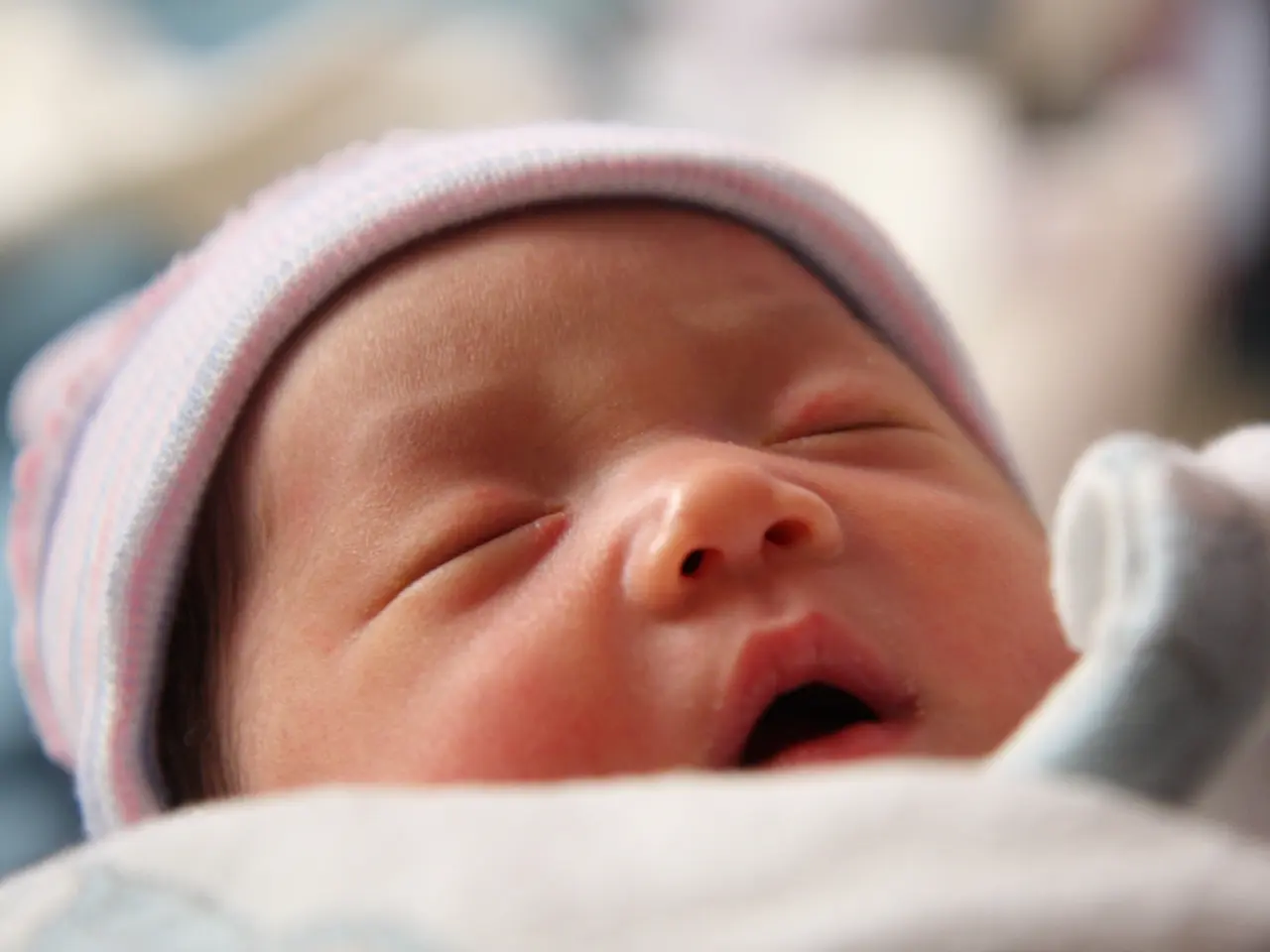Nighttime Struggles fueled by Anxieties in a Child's Sleep Routine
In the realm of child development, quality sleep is a fundamental building block. Unfortunately, many parents face challenges in ensuring their children get the sleep they need. Here are some key findings and expert recommendations to help navigate this essential aspect of childcare.
A significant proportion of sleep issues in children stem from nighttime worries and anxiety, with nearly 25% of cases directly attributed to these factors. This underscores the importance of addressing children's emotional wellbeing as part of a holistic approach to sleep.
When it comes to nap transitions, gradual adjustments are key. Abrupt changes can disrupt the sleep pattern, making it more challenging for children to adapt.
The use of melatonin supplements to solve sleep problems has become common, with nearly one in five parents turning to this solution. However, it's important to note that the widespread use of melatonin for children hasn't undergone rigorous testing for safety and effectiveness in this age group.
Noise from other rooms can significantly interfere with a child's sleep, according to more than 40% of parents. Creating a quiet, peaceful environment can help promote better sleep.
Blue light emitted by tablets and televisions can interfere with natural melatonin production, which is crucial for sleep. It's advisable to limit screen time before bedtime and ensure that light sources do not shine directly on a child's face.
Sleep skills are learned behaviours that develop gradually over time. Consistency in sleep approaches doesn't mean inflexibility; rather, it means having predictable responses to predictable situations.
Co-sleeping arrangements are common, with nearly half of families finding themselves in such a situation. However, children who regularly sleep with parents have more difficulty developing independent sleep skills.
One in four parents struggle nightly to get their young children to sleep. Allowing extra time for children to discuss their day can create opportunities to address sleep-disrupting worries.
Young children's brains are wired differently when darkness falls, making every shadow potentially dangerous and every sound worth investigating. This can lead to sleep disruptions.
Poor sleep affects everything from immune function to learning capacity, making quality sleep a foundational element of overall child development. The investment in developing healthy sleep habits pays dividends that extend well beyond the early childhood years.
Sleep experts prefer strategies such as establishing a consistent bedtime routine, creating a calming environment, using relaxation techniques like deep breathing, and providing comfort objects to reduce children's anxiety and worries at bedtime.
More than one-third of parents report their child wakes up upset or crying during the night. Children ages one to two require 11-14 hours of total sleep, including naps, but this need gradually shifts as they approach school age.
It's crucial to remember that not all bedtime routines are created equal, and some popular strategies actually intensify sleep problems over time. Avoiding common pitfalls and implementing evidence-based strategies can help parents and children enjoy restful nights.
Lastly, it's worth noting that white noise machines, when used incorrectly, can potentially damage developing hearing. Always follow the manufacturer's guidelines when using these devices.
By understanding these common challenges and employing evidence-based strategies, parents can help their children develop healthy sleep habits that foster overall wellbeing and support successful development.
Read also:
- Comprehensive Overview of Addressing Traumatic Brain Injuries (TBIs)
- Enhanced Health Services Provisioned by San Diego Academic Health Partnership Continues During COVID-19 and Beyond
- Vaccination drive targeting infants under 6 months old against bronchiolitis in the region of Andalucia
- Biopsy Basics: Objectives, Varieties, and Potential Hazards - Healthline Illuminated






